
SACRAMENTO, Calif. — A decadelong quest to organize fast food workers is culminating in the state that gave America McDonald’s and Taco Bell.
A protracted showdown between labor unions and major restaurant chains has extended into the final weeks of California’s legislative session this month, with Gov. Gavin Newsom’s office tiptoeing into a battle that could transform a multibillion dollar industry and recharge the American labor movement — in an effort to help the clashing parties reach an agreement.
The Newsom administration has helped to mediate, but they've kept quiet as a deal does not appear to be imminent.
Both sides have compelling reasons to stand their ground. Labor sees a breakthrough chance to force corporations to the negotiating table, while the industry sees a fundamental threat that would drive up prices and shutter stores. They are barreling toward a 2024 ballot showdown over a fast food labor law passed last year unless they make a deal.
It is a watershed moment that industry leaders fear could have national ramifications. As a labor stronghold, California may be best positioned to be the first state in the country to deliver the long-elusive goal of unionized fast food workers. But that has unleashed a ferocious counteroffensive from a franchise industry determined to protect its business model and confine the threat to California.
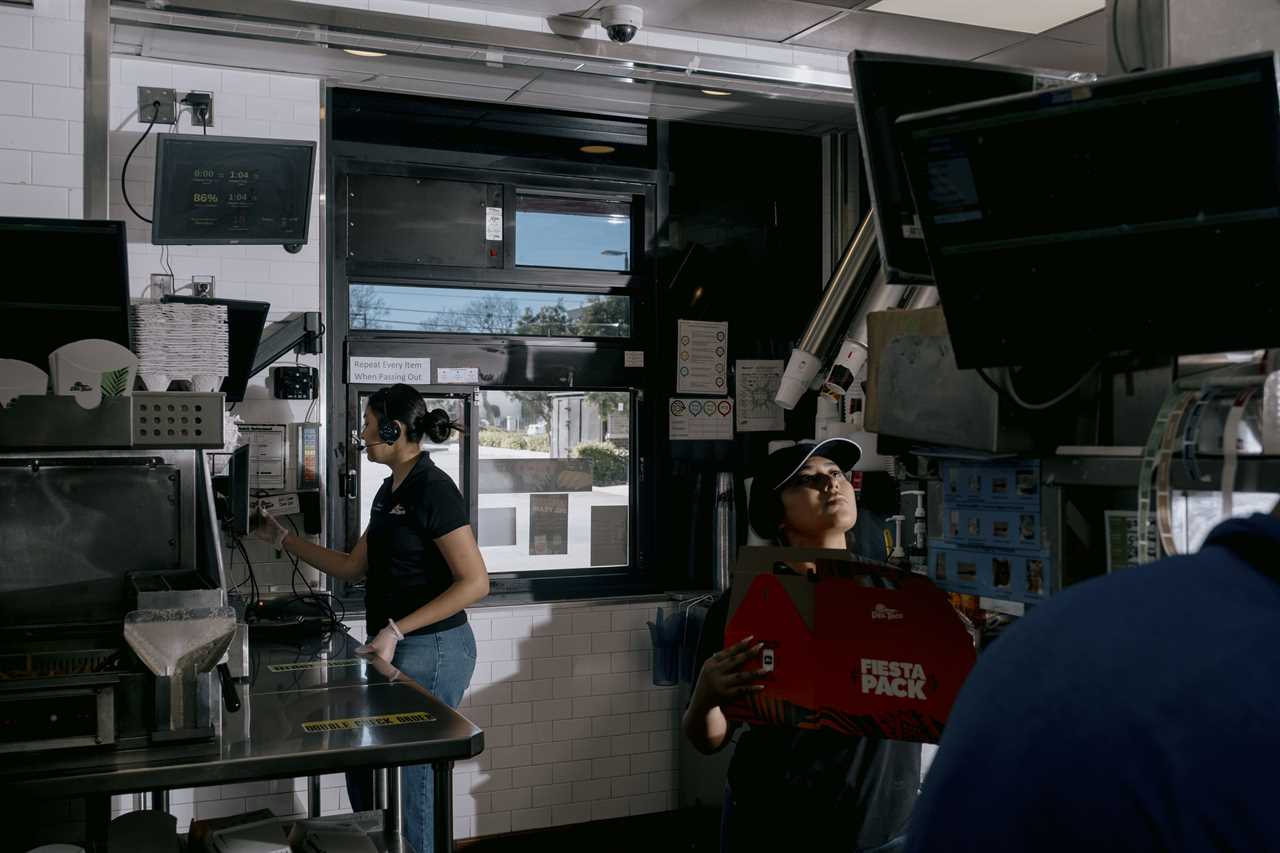
“We’re so close now,” South Bay Labor Council Executive Officer Jean Cohen said recently as striking fast food workers rallied behind her at San Jose City Hall. “We have been successful because we see millions of dollars put into fighting low-wage workers. They’re taking a defensive posture.”
Even as evolving consumer tastes and technology are poised to transform the industry — with customers eschewing dining in and some chains experimenting with artificial intelligence and robots — there are still millions of Americans employed preparing and serving tacos, fried chicken and hamburgers. More than 500,000 of them are in California. Sacramento’s escalating, multi-year fight over fast food labor has led corporations to spend more than $80 million since 2021 to block efforts to regulate pay and address health and safety concerns.
Last year, California narrowly passed the Service Employees International Union’s landmark bill creating a fast food labor council empowered to raise wages and prescribe working conditions. The industry immediately qualified a voter referendum challenging the law, which put it on hold. SEIU responded this year with a bill to clamp down on franchisors — reviving an idea that had been dropped from the 2022 bill — and gained more political leverage by securing funding for a defunct state wage regulator.
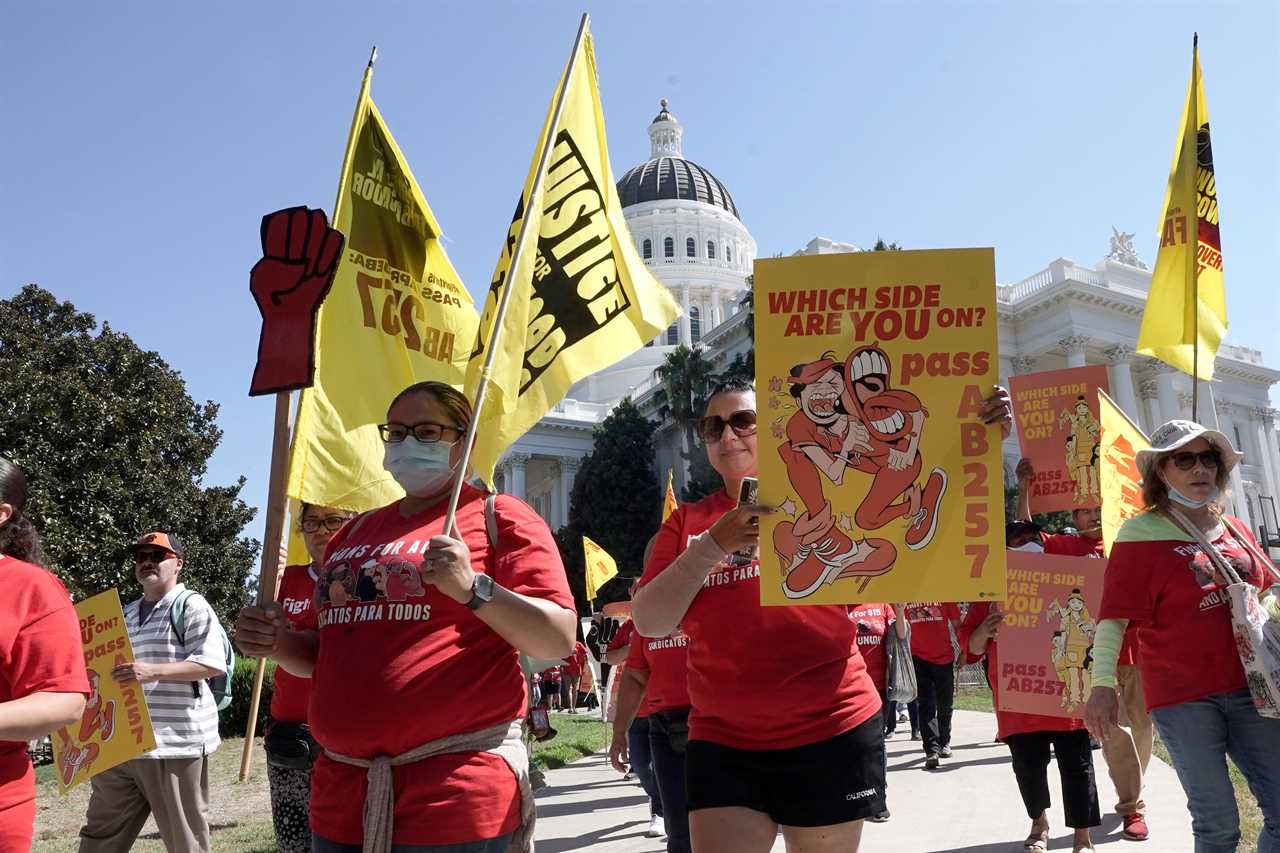
SEIU’s latest bill faltered in the face of enormous industry opposition in July, but it could return in the final weeks of the legislative session. It has been parked in committee as secretive negotiations unfold with the involvement of Newsom’s office. It’s a familiar role for the governor, who sought to strike a deal between warring labor and gig economy companies in 2019.
Franchise businesses have brought their vast financial resources to bear, channeling more than $70 million so far to overturn the law at the ballot and more than $4 million this year to lobby against the follow-up bill. They have pumped millions of dollars into advertising and organized meetings between franchise owners and state lawmakers, warning of fast food restaurants exiting California — no small thing for a state whose official tourism website touts the birthplace of brands like Taco Bell, In-N-Out and McDonald’s.
“McDonald’s came into my office and said they’d leave the state or stop franchising in the state,” state Sen. Shannon Grove (R-Bakersfield) said during a floor debate last year. “Can we really survive without the golden arches?”
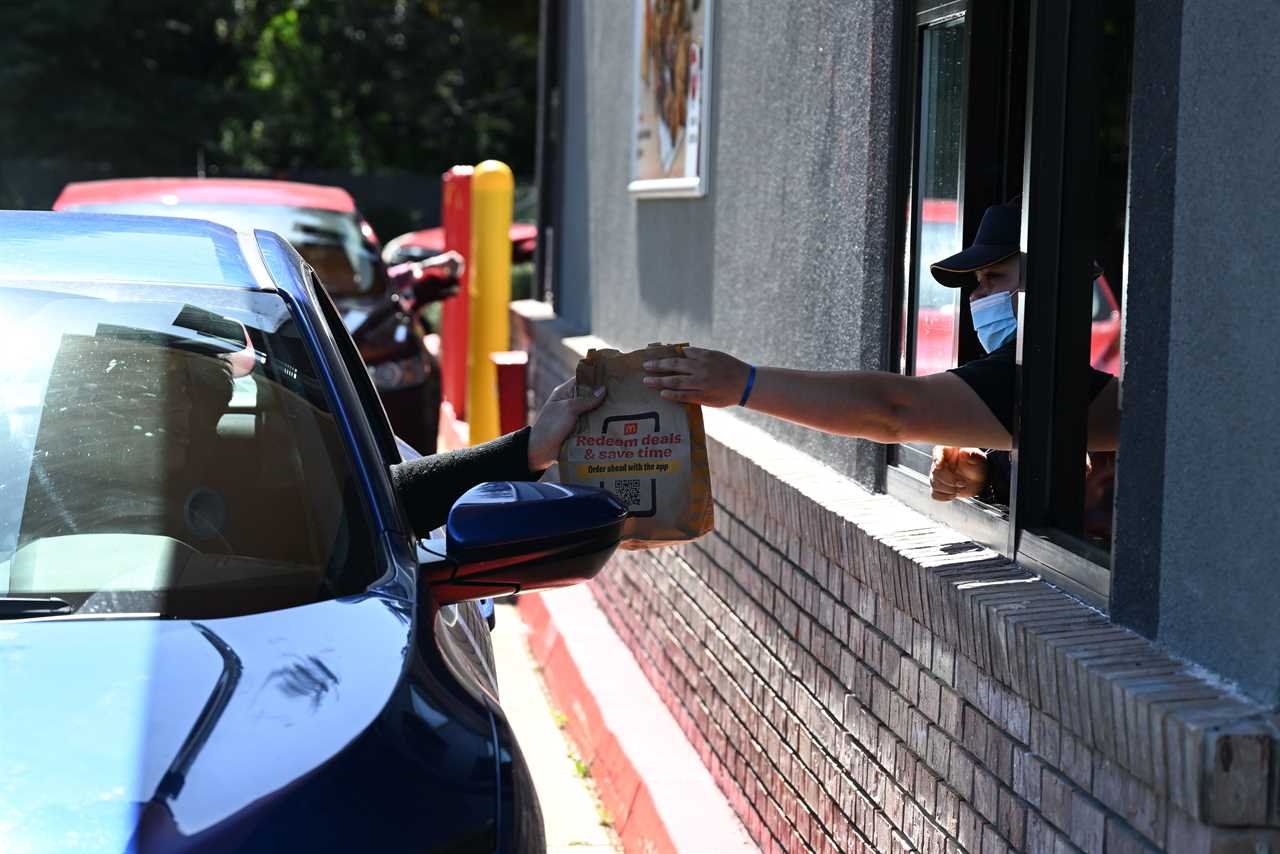
International Franchise Association President Matt Haller said in an interview that business advisers were telling prospective franchise owners to avoid opening locations in California, decrying the legislation as a union ploy to “increase market share” and add members. He said his organization has been actively working to head off similar efforts in other states. Bills in New York and Virginia have not advanced, and Haller said his organization was talking to lawmakers in “half a dozen” states beyond California.
“The best defense can sometimes be a good offense,” Haller said. “We need to be mobilizing our members in other cities and states and educating policy members about what’s at stake before they’re being presented with something as a fait accompli by organized labor.”
SEIU’s leadership has not been shy about discussing the national ripple effects for both the economy and the labor movement. President Mary Kay Henry has been deeply involved in the California fight, appearing in Sacramento to meet with lawmakers and push for the council bill and taking a public role in opposing the industry’s referendum, which she condemned while testifying to the U.S. Senate in March.
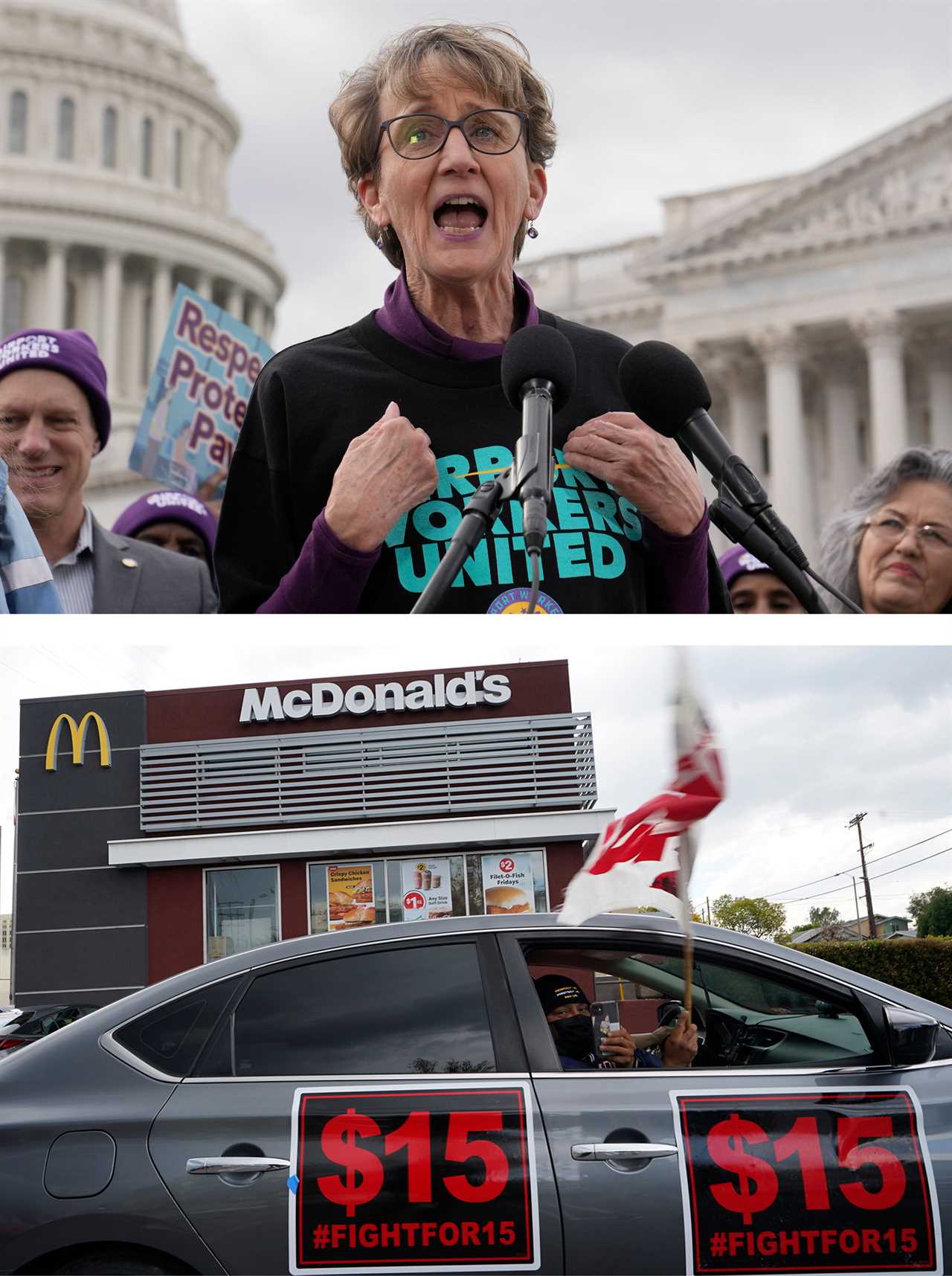
“Fast food corporations pooled their resources to put a landmark state labor law on hold and potentially overturn it,” Henry said, arguing for solidarity “across industries worked by SEIU members, workers in the Fight for 15 and a Union, and partners with Starbucks Workers United — that’s why working people are demanding a voice on the job through their unions.”
Unions have long sought to make inroads with fast food workers, arguing they are underpaid and exploited. They have ramped up their activity in recent years as poor pandemic working conditions and a national labor shortage galvanized employees, and a series of strikes and walkouts across the state have coincided with California’s summer of simmering labor activism.
Yet even as the Fight for 15 and a Union movement grew from a 2012 New York City action into a national campaign, with California among the states to secure a $15 minimum wage, the fast food unions have remained elusive.
Labor organizers say they have been thwarted by intransigent managers and the arduous task of having to organize franchise workers, store by store. California’s on-hold law would vault over those obstacles by creating a labor regulator that oversees the entire industry. It’s an approach similar to the sectoral bargaining model more common in Europe.
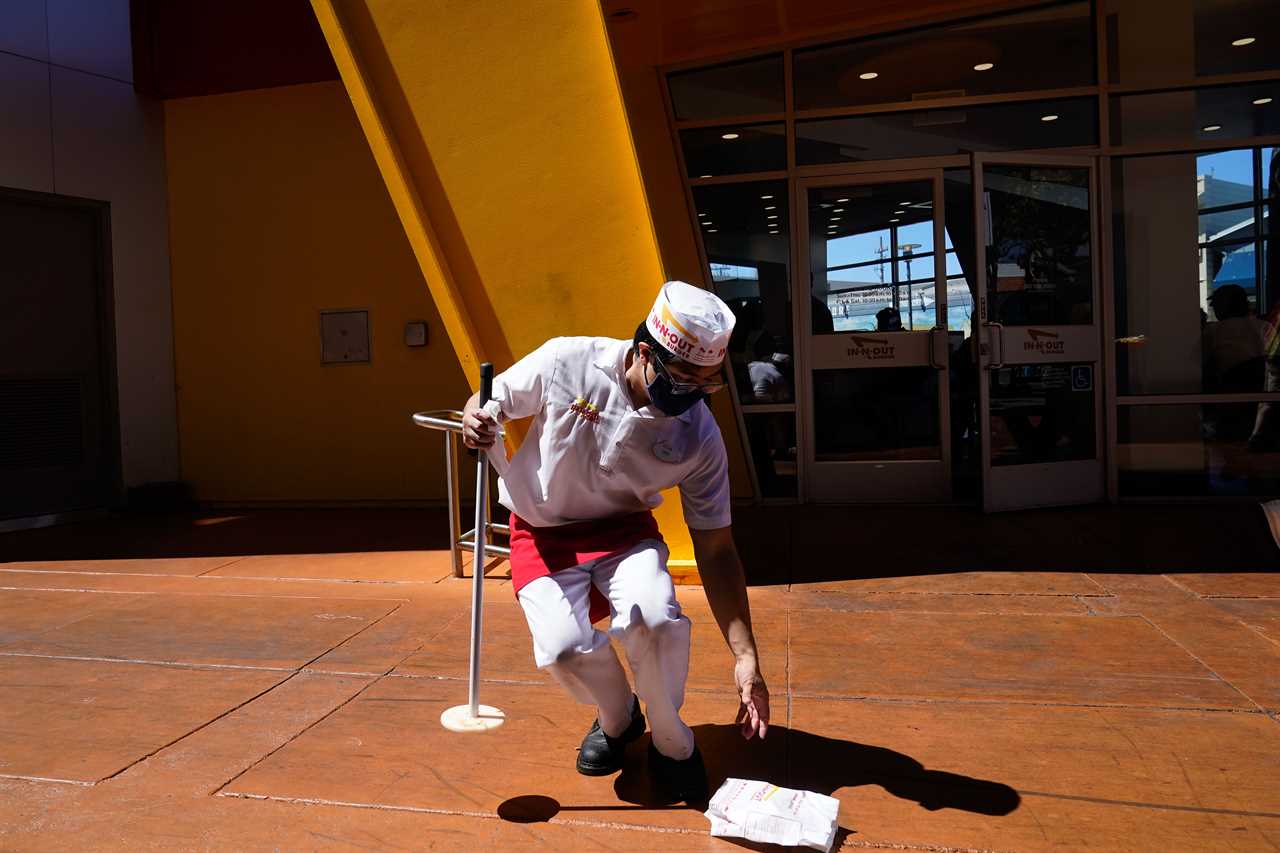
“Because it’s so many stores, and going store to store would be difficult, the path to unionization here is basically through legislation,” said Brandon Dawkins, SEIU 1021 vice president of organizing. “After we get the council together and force the employer to the table, then the unions — we can come in and really sit down and negotiate with the corporations to, number one, create a union and, number two, address issues like safety and wage theft.”
A labor council’s purview extends to workplace conditions like predictable scheduling — a longstanding goal for labor — noted California Labor Federation Executive Officer Lorena Gonzalez, a former state lawmaker who carried an earlier version of the bill when she served in the state Assembly.
Gonzalez said the 2023 bill to hold corporations liable for issues at individual restaurants would also strengthen workers’ hands by making the chains responsible. The bill’s supporters argue that companies use the franchise model to push responsibility onto restaurant operators who lack the flexibility to improve workplace conditions.
“If you get joint employer liability, it’s more likely McDonald’s would want to talk about a national agreement or strategy because now they’re on the hook for every labor violation,” Gonzalez said.
That tactic has angered restaurant operators who have rallied against the legislation. Marisol Sanchez, a second-generation McDonald’s franchise owner, has appeared in advertising opposing the 2023 bill. Sanchez said she believed SEIU was acting on its own political agenda rather than in response to worker demands.
“There might not be that much interest in the general population. There’s outside factors coming in,” Sanchez said in an interview. “AB 1228 is SEIU trying to short-circuit the process. They’re trying to negotiate with the big brands."
----------------------------------------
By: Jeremy B. White
Title: California gave America McDonald’s. Now it could serve up fast food unions.
Sourced From: www.politico.com/news/2023/08/14/california-fast-food-union-ballot-measure-00110540
Published Date: Mon, 14 Aug 2023 04:00:00 EST






